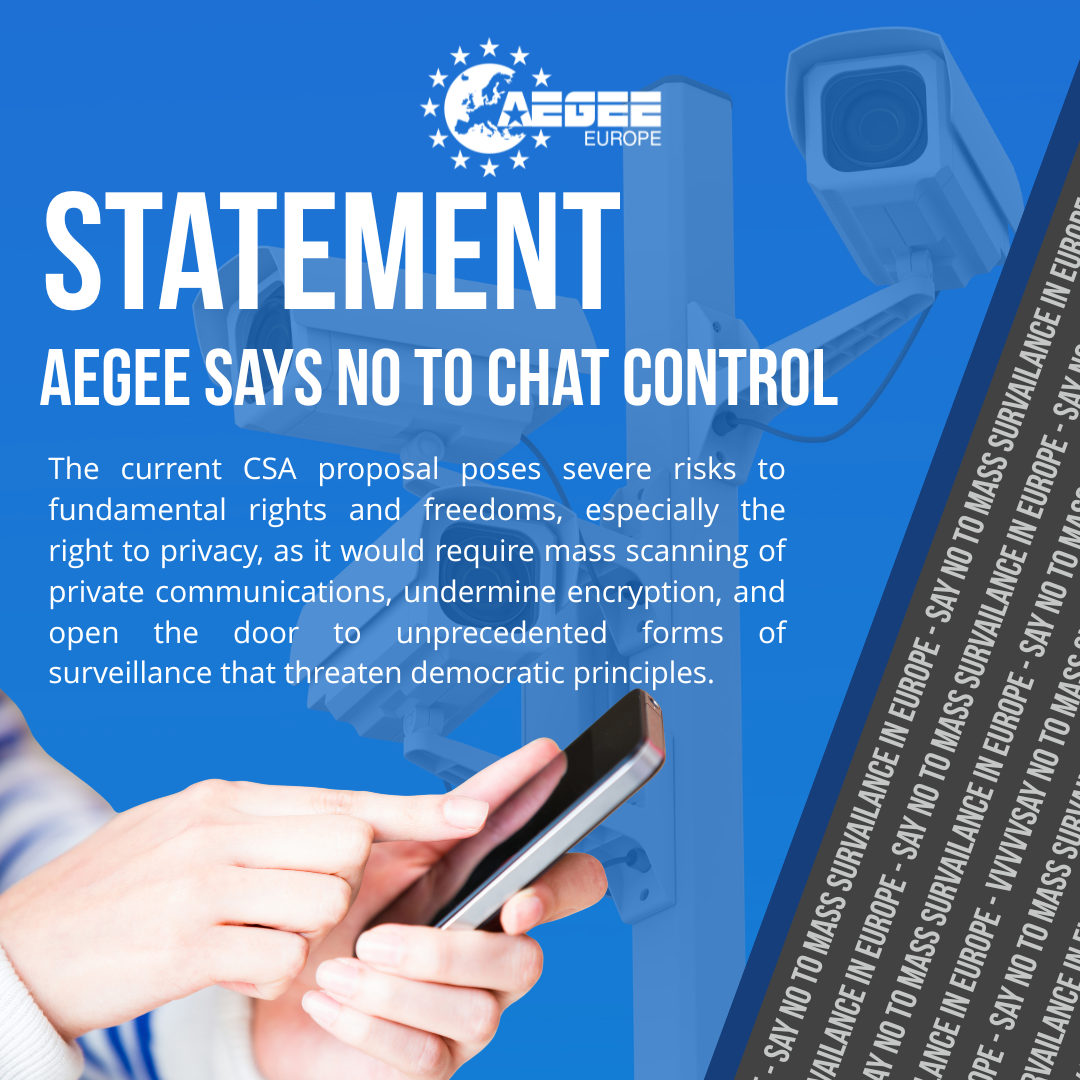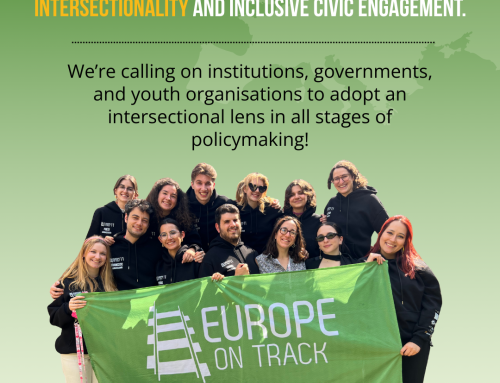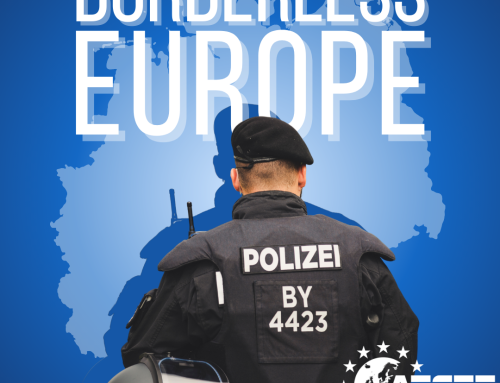AEGEE-Europe, as a network of young people committed to building a democratic, inclusive, and borderless Europe where all human rights are protected, expresses deep concern regarding the proposed EU Regulation on Child Sexual Abuse (CSA), commonly known as “Chat Control” [1], for which the Council vote will take place on the 14th of October 2025 [2]. We acknowledge the urgent need to combat child sexual abuse online and offline. Protecting children and young people is a shared responsibility of all European societies. We support measures that strengthen law enforcement capacities, ensure swift protection for victims,
and provide resources for prevention and education. However, the current CSA proposal poses severe risks to fundamental rights [3] and freedoms, especially the right to privacy, as it would require mass scanning of private communications, undermine encryption, and open the door to unprecedented forms of surveillance that threaten democratic principles.
Background
The European Union’s proposed Child Sexual Abuse Regulation (CSA), also known as “Chat Control”, aims to prevent the sharing of child sexual abuse material (CSAM) online. It would require online platforms and service providers, such as messaging apps, email, and social media, to detect, report, and remove illegal content.
The regulation will impose obligations such as:
- Risk Assessments: Providers (hosting, messaging, app stores, etc.) must assess if
their service is likely to be misused for CSAM or grooming. - Mitigation: Implement measures such as safer design, parental controls, reporting
tools, and age verification where relevant. - Detection Orders: Issued by a judicial/independent authority if risk is significant and
mitigation is insufficient, can require scanning for:- Already known CSAM
- New CSAM
- Grooming
While the goal is to protect children, the regulation raises serious concerns regarding privacy, encryption, digital rights, and potential overreach, as companies would need to analyse large amounts of all of their users’ data and chats to find new instances of CSAM. By requiring the scanning of all private communications, even those of people not suspected of any crime, the system effectively monitors the digital activity of millions of users. This generalised and indiscriminate monitoring fits the definition of mass surveillance, creating a situation where everyone’s private communications are potentially scrutinised, rather than targeting only those committing illegal acts.
Impact on Privacy and Youth Freedom of Expression
Young people, especially vulnerable groups like LGBTQI+ youth or minorities, rely on secure messaging [4] for activism, mental health support, and personal safety, and monitoring their messages could make them hesitant to speak freely, share opinions, or participate in online communities [5]. Mandatory scanning of private communications also undermines end-to-end encryption, which is essential for protecting personal data, freedom of expression, and privacy. The proposed detection orders, while intended to protect children, risk creating a constant sense of surveillance that chills free expression, discourages civic engagement, and limits participation in digital spaces where young people organise, express themselves, and seek support.
Risk of False Positives & Stigmatisation
According to the European Digital Rights Institute: ”this detection would be automated through AI, despite such tools being unable to take the context of a message into account, and despite the consequent high number of mistakes in their reporting which would inevitably lead to wrongful accusations, drown genuine cases in false alerts, and criminalise teenagers’ consenting and private sexual self-expression.”[6]
Better Alternatives Exist
Rather than weakening encryption and introducing mass surveillance to European citizens,
we call upon the European Commission to invest in:
- Better victim support services and cross-border law enforcement cooperation.
- Prevention and education campaigns for children, parents, caretakers and
educators. - Strengthening judicial oversight and accountability in combating online CSA.
Therefor we call on the Council and the European Parliament to:
- Reject any provisions that undermine encryption and introduce mass surveillance of
private communications. - Prioritise rights and privacy respecting solutions that both protect children and
safeguard the digital rights of all citizens, especially young people. - Ensure meaningful involvement of youth and civil society in shaping digital
legislation that directly affects our generation’s future.
We also call upon EU citizens, youth and our own members to speak up and take action.
You can easily do so by reaching out to your own government or members of the European
Parliament, an easy tool for which can be found on fightchatcontrol.eu.
1: EUR-Lex – 52022PC0209 – EN – EUR-Lex
2: http://www.europarl.europa.eu combating child sexual abuse online
3: European Convention on Human Rights
4: https://www.openrightsgroup.org/blog/queercryption-safety-in-numbers/
5: Stop Scanning Me
6: Denmark wants to break the Council deadlock on the CSA Regulation, but are they
genuinely trying? – European Digital Rights (EDRi)






